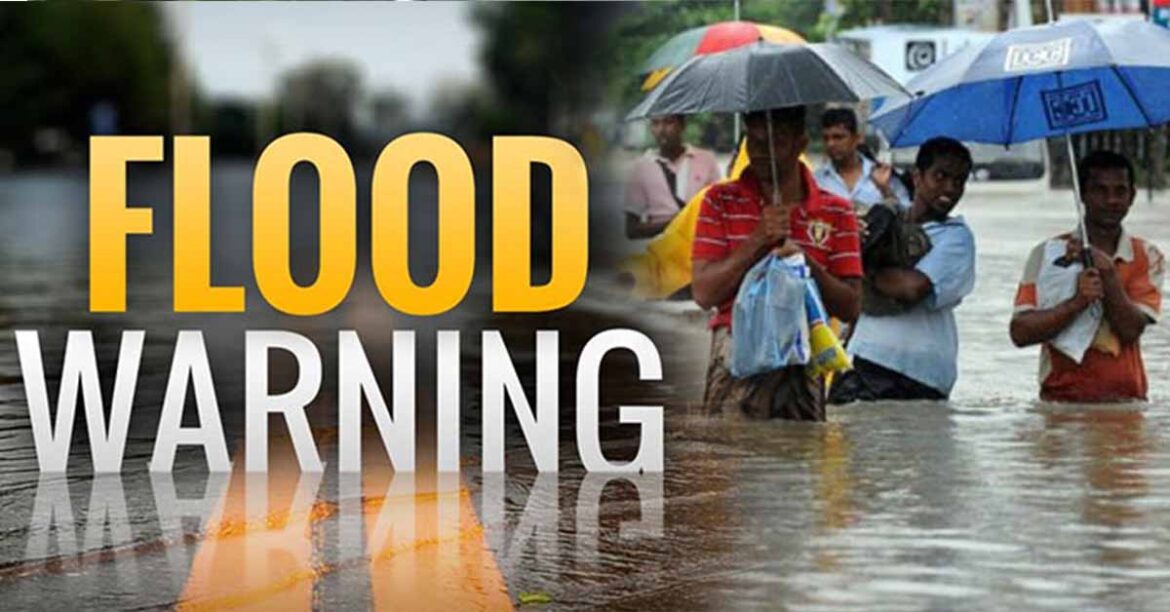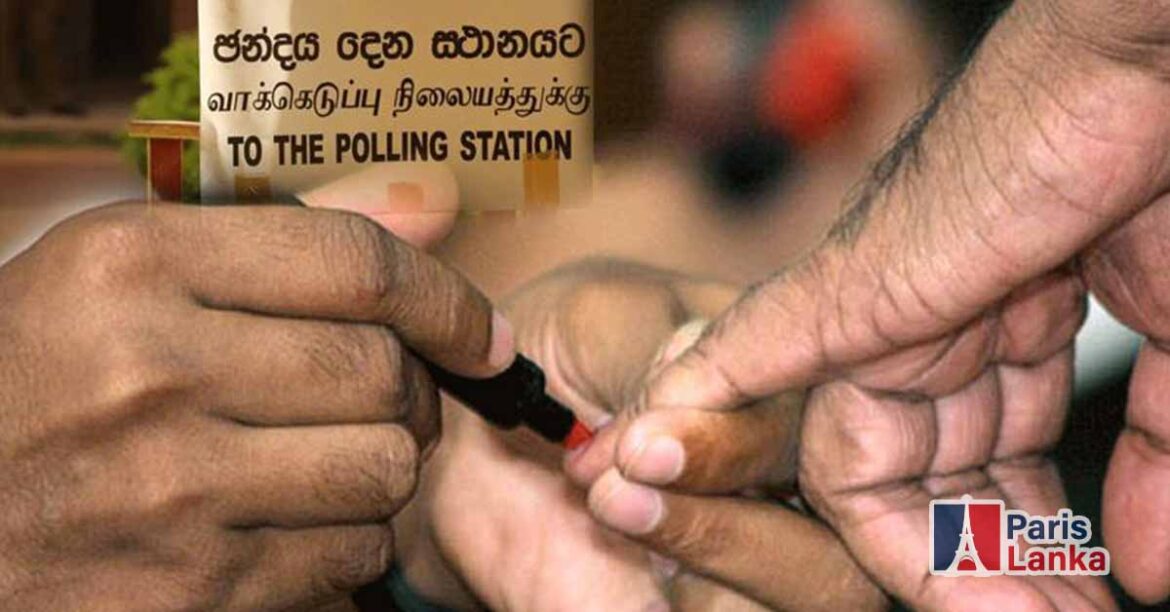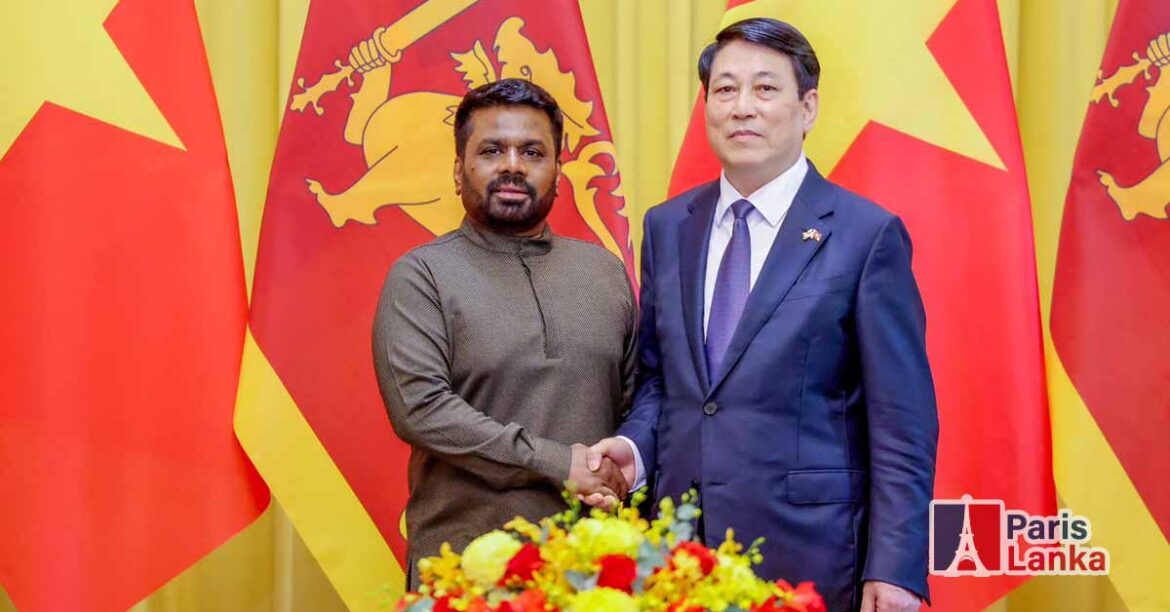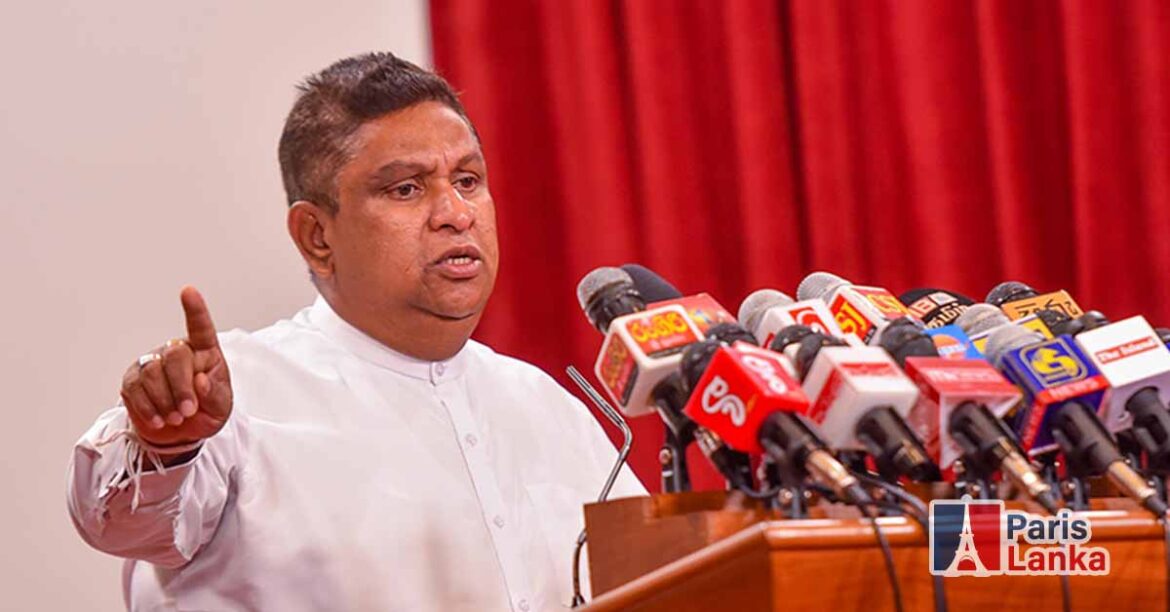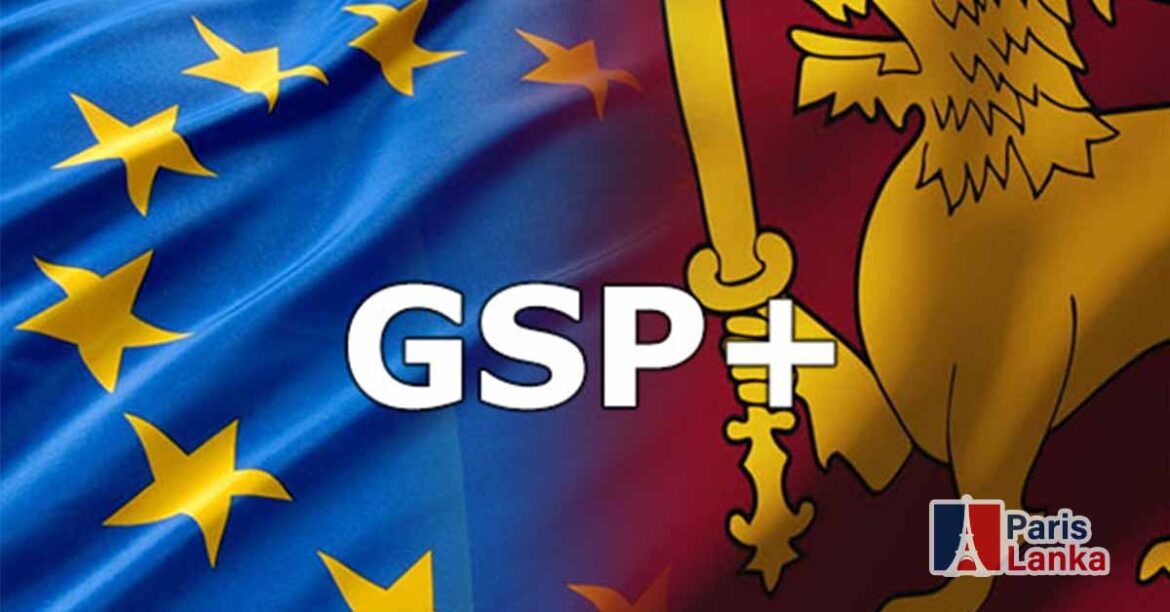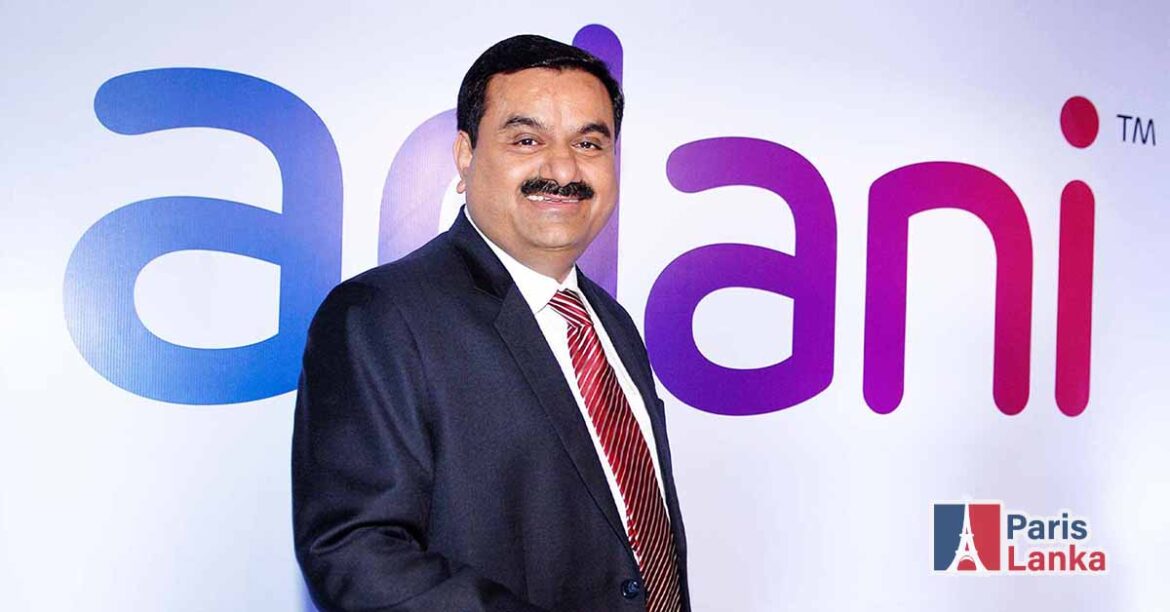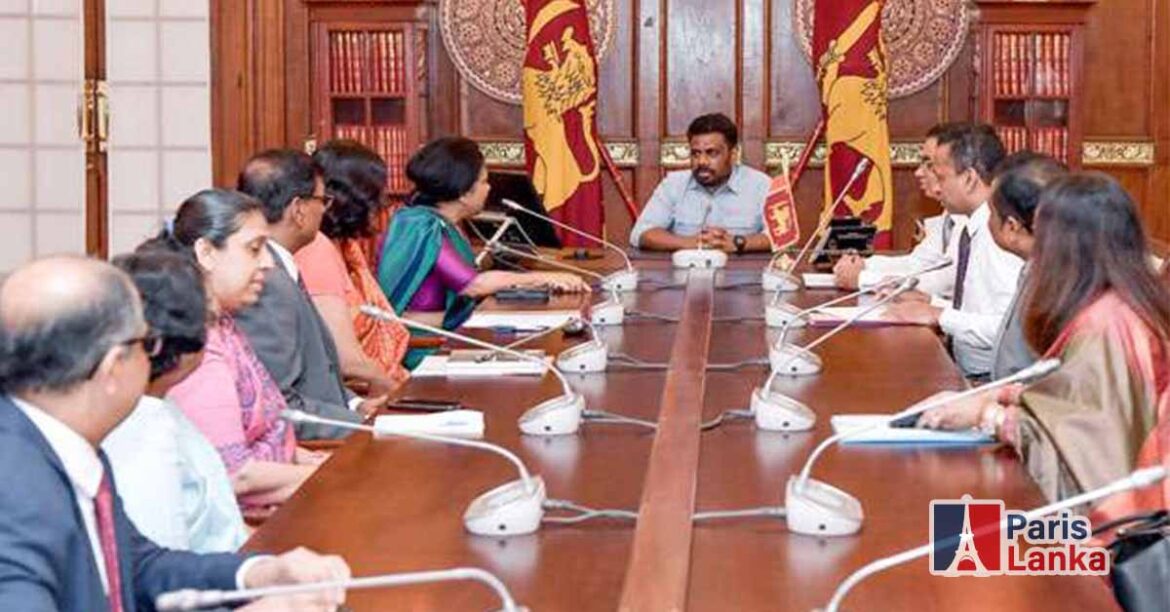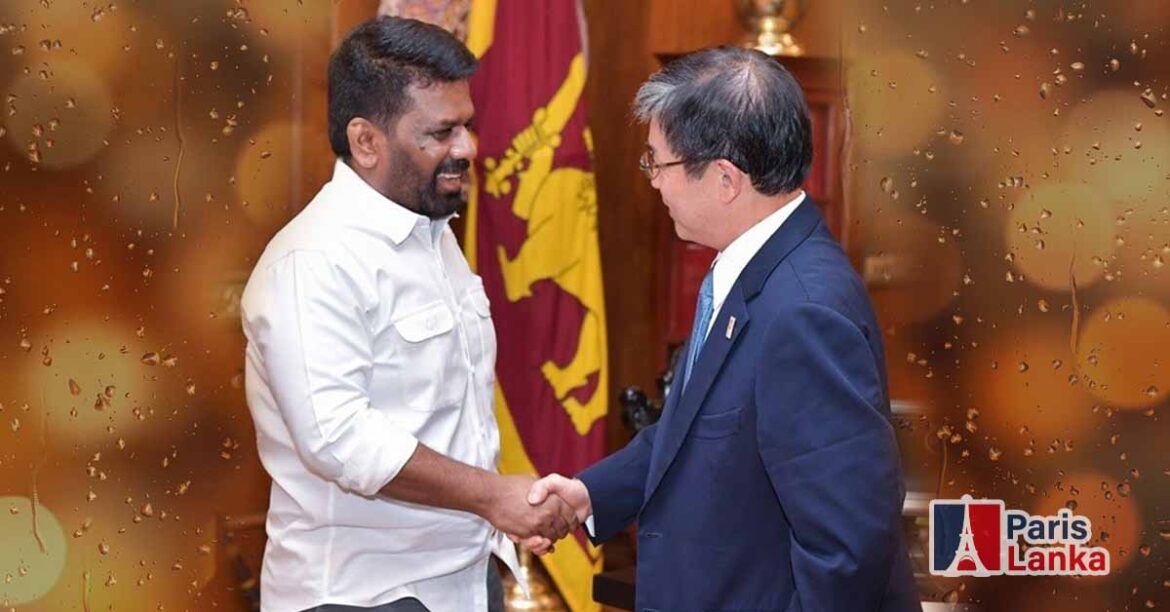මේ දිනවල පවතින අධික වර්ෂාපතනය හේතුවෙන් උතුරු, උතුරු මැද, නැගෙනහිර, දකුණ, ඌව සහ බස්නාහිර පළාත්වලට ගංවතුර ඇතිවීමේ අවදානමක් ඇති බව වාරිමාර්ග දෙපාර්තමේතුව පවසනවා.
වාරිමාර්ග දෙපාර්තමේන්තුව වැඩිදුරටත් සඳහන් කරන්නේ ප්රධාන ගංගාවල ජල මට්ටම් ඉතාමත් ඉහළ මට්ටමක පවතින බැවින් හදිසි වර්ෂාවකදී ගංවතුර තත්ත්වයක් ඇති වීමේ අවදානමක් ඇති බවයි.
නිවේදනයක් නිකුත් කරමින් එම දෙපාර්තමේන්තුව පවසන්නේ දකුණු අන්දමන් මුහුදු ප්රදේශය ආසන්නව වර්ධනය වෙමින් පවතින අඩුපීඩන කලාපය හේතුවෙන් දිවයිනේ පළාත් 6ක මි.මී 200ට වැඩි වර්ෂාපතනයක් ඇති විය හැකි බවයි.
ඒ අනුව අද (25) සිට නොවැම්බර් මස 30 වැනිදා දක්වා කාලය තුළ ගංවතුර තත්ත්වයක් ඇතිවීමේ අවදානමක් පවතින බැවින් සියලුම ගංගාවල පහත් නිම්නයන්හි පදිංචි ජනතාව හා එම ප්රදේශ ඔස්සේ ගමන්කරන ජනතාව දැඩි අවධානයෙන් පසුවන ලෙසයි ඔවුන් වැඩිදුරටත් අවධාරණය කරන්නේ.
sri lanka
හිටපු රාජ්ය අමාත්ය ප්රසන්න රණවීර අද (07) උදෑසන මහර මහෙස්ත්රාත් අධිකරණයට භාර වී තිබෙනවා.
කිරිබත්ගොඩ පිහිටි රජයේ ඉඩමක් ව්යාජ ලිපිලේඛන සකසා අලෙවි කිරීමේ සිද්ධියක් සම්බන්ධයෙන් අත්අඩංගුවට ගැනීමට අධිකරණය මඟහැර සිටි පසුබිමක හිටපු රාජ්ය අමාත්ය ප්රසන්න රණවීර අත්අඩංගුවට ගැනීම සඳහා අධිකරණය විසින් විවෘත වරෙන්තුවක් ද නිකුත් කර තිබුණා.
පළාත් පාලන මැතිවරණයට අදාළ ඡන්ද ප්රකාශ කිරීමේ කටයුතු අද (06) පස්වරු 04.00ට අවසන් වුණා.
දිවයින පුරා ඡන්ද මධ්යස්ථාන 13,759කදී මෙවර මැතිවරණයේ ඡන්ද විමසීම සිදුකෙරුණා.
මෙවර මැතිවරණය සඳහා අපේක්ෂකයින් 75,589ක් තරග කර ඇති අතර මෙවර මැතිවරණයේ ඡන්ද විමසීම සඳහා
ඡන්ද දායකයින් 17,156,338ක් සුදුසුකම් ලබා තිබෙනවා.
ජනාධිපති අනුර කුමාර දිසානායක ඊයේ (05) වියට්නාම් ජනාධිපති ලුඕං කුඕං හමු වී තිබෙනවා.
වියට්නාමයේ රාජ්ය සංචාරයක නිරත වන ජනාධිපති අනුර කුමාර දිසානායක වියට්නාම් ජනාධිපතිවරයා විසින් ඉතා උණුසුම් අයුරින් පිළිගනු ලැබුවා.
මෙම හමුවේදී ශ්රී ලංකාව හා වියට්නාමය අතර ද්වීපාර්ශ්වික සාකච්ඡා ආරම්භ කර තිබෙනවා. තවද එහිදී දෙරටේ ප්රගති සමාලෝචනය, අනාගත සහයෝගීතා පිළිබඳ සාකච්ඡා කර ඇති අතර අවබෝධතා ගිවිසුම් කිහිපයකට ද අත්සන් තබා ඇති බවයි ජනාධිපති මාධ්ය අංශය නිවේදනයක් නිකුත් කරමින් සඳහන් කළේ.
මෙම සංචාරය මඟින් දේශපාලන විශ්වාසය වැඩි දියුණු කිරීමට සහ දෙරට අතර විවිධ අංශ මඟින් ප්රායෝගික හා ඵලදායී සහයෝගීතාව තවදුරටත් ප්රවර්ධනය කිරීමට අපේක්ෂා කෙරේ.
නීති විරෝධී වත්කම් විමර්ශන කොට්ඨාසය විසින් පාර්ලිමේන්තු මන්ත්රී චාමර සම්පත් දසනායකගෙන් අද (03) ප්රකාශයක් ලබා ගෙන තිබෙනවා.
ලංකා පොස්ට්පේට් සමාගම මගින් පසුගිය කාල සීමාව තුළ රොක් පෝස්පේට් මෙට්රික් ටොන් තිස්දහසක් අපනයනය සඳහා සමාගම් තුනක් වෙත නීති විරෝධී ලෙස අලෙවි කිරීමෙන් රජයට මිලියන 2,700කට ආසන්න මුදලක් අහිමි කර ඇති බවට ලැබී ඇති පැමිණිල්ලක් සම්බන්ධයෙනුයි මන්ත්රීවරයාගෙන් මෙම ප්රකාශය ලබා ගෙන ඇත්තේ.
ඒ අනුව මන්ත්රීවරයාගෙන් නීති විරෝධී වත්කම් විමර්ශන කොට්ඨාසය විසින් පැය 4ක ප්රකාශයක් ලබාගෙන ඇති බවයි වාර්තා වන්නේ.
Opposition MP Harsha de Silva says Sri Lanka will have to reapply for the European Union’s Generalised Scheme of Preferences Plus (GSP+).
Taking to ‘X’, he said Sri Lanka has to reapply as the trade concession will end by 2027.
“I double checked… There is no quota to seek an increase,” he said.
MP Harsha de Silva further said Sri Lanka now has to deliver on its promises on the Prevention of Terrorism Act (PTA) and the Online Safety Act (OSA).
He made the comments following a discussion with the visiting European Union Commission delegation.
President Anura Kumara Disanayake held an extensive discussion with officials from the Ministry of Finance today (07) at the Presidential Secretariat. The meeting focused on issues related to vehicle imports, withholding tax, and the digitalization of VAT collection.
A significant portion of the discussion addressed the challenges surrounding vehicle imports into Sri Lanka. The President emphasized the need for a well-balanced approach to address these concerns, taking into account the country’s financial constraints and economic priorities.
The President also highlighted the importance of establishing a mechanism to refund withholding taxes deducted from retirees who are not subject to income tax.
Additionally, President Disanayake highlighted the urgent need to digitize Value-Added Tax (VAT) collection processes to enhance efficiency and transparency. He announced plans to implement a comprehensive digital system soon, which is expected to improve tax compliance and revenue generation.
During the meeting, the President expressed optimism about Sri Lanka’s economic progress, stating that the country is steadily moving towards recovery and stability. He reiterated the government’s commitment to maximizing the benefits provided to citizens, even amidst the current challenges.
The meeting was attended by Deputy Minister of Finance and Planning Dr. Harshana Suriyapperuma, Secretary to the Ministry of Finance, Mahinda Siriwardana, the Governor of the Central Bank Nandalal Weerasinghe, Senior Advisor to the President Duminda Hulangamuwa and senior officials from the Ministry of Finance. (PMD)
The Adani Group, one of India’s largest conglomerates, is under heightened scrutiny as it faces challenges in Sri Lanka alongside domestic and international controversies. The Sri Lankan government’s decision to review Adani’s projects in the country underscores growing concerns about the company’s operations, transparency, and financial stability.
Sri Lankan Challenges
The Ministry of Power and Energy in Sri Lanka has announced plans to form a committee to assess the viability and costs of Adani’s projects. This move follows the appointment of an earlier committee tasked with examining wind power plant projects proposed by Adani in Mannar and Pooneryn, which aim to generate 484 megawatts of electricity.
The review highlights potential concerns over the cost-effectiveness, environmental impact, and terms of the agreements surrounding these projects. Adding to the complications, the Adani Group withdrew from a $553 million loan agreement with the US International Development Finance Corporation (DFC) last year. This withdrawal came amid allegations of bribery related to Adani’s executives, further clouding the company’s image in Sri Lanka.
The SJB and the NPP both have been critical of Adanis Power Projects while being in the oppasition in the previous government,
Local and Global Troubles
The scrutiny in Sri Lanka is part of a broader pattern of challenges faced by Adani across multiple regions. In the United States, allegations emerged in court filings that the company paid over $250 million in bribes to Indian officials for solar energy contracts. While Adani has strongly denied these charges and vowed to fight them, the allegations have compounded the conglomerate’s growing troubles.
In Kenya, the government recently canceled $2.6 billion in infrastructure contracts involving Adani, citing concerns about transparency and project execution. Domestically, the company is facing financial challenges as it struggles with mounting debt from its vast portfolio of infrastructure and energy projects.
Implications for Sri Lanka
The reviews in Sri Lanka could have far-reaching implications for Adani’s reputation and its ability to secure future international contracts. The wind power projects in Mannar and Pooneryn, which hold promise for boosting Sri Lanka’s renewable energy capacity, are now under the microscope. If the projects face delays or cancellations, it could hinder Sri Lanka’s energy goals while further tarnishing Adani’s global standing.
As the Adani Group navigates these challenges, its future hinges on rebuilding trust and demonstrating greater accountability. In Sri Lanka, the outcome of the government’s reviews will likely shape the company’s prospects not only on the island but also across other international markets where its ambitions face increasing resistance
President Anura Kumara Dissanayake has appointed a High Commissioner and four Ambassadors to represent Sri Lanka in its diplomatic service.
The appointments include W. G. S. Prasanna as High Commissioner-designate to New Zealand, R. S. Khan Azard as Ambassador-designate to Qatar, S. K. Gunasekera as Ambassador-designate to Russia, L. P. Ratnayaka as Ambassador-designate to Kuwait, and A. S. K. Seneviratne as Ambassador-designate to Egypt.
The President formally handed over the official appointments during a ceremony held today (7th) at the Presidential Secretariat, the President’s Media Division (PMD) said.
Following the ceremony, the newly appointed diplomats held a brief discussion with the President.
In his address, President Disanayake expressed confidence in the diplomats’ abilities and underscored the importance of their roles in strengthening Sri Lanka’s bilateral relationships and fostering cooperation with the respective nations.
He urged them to prioritize enhancing the country’s international image and advancing its global interests.
The President also emphasized the need for Sri Lanka’s diplomats to ensure the welfare of Sri Lankans working abroad, particularly in regions such as the Middle East, South Korea, and Japan, where a significant number of expatriates are employed. He called for fair and equitable support for these workers, regardless of their location.
Additionally, President Disanayake encouraged the newly appointed diplomats to focus on attracting direct foreign investment and expanding international market opportunities for Sri Lankan entrepreneurs. He assured them of the government’s full backing and announced plans for future discussions to review the progress of these initiatives.
The PMD said that the newly appointed diplomats were selected from career diplomats with over 20 years of experience in the Sri Lanka Foreign Service, recognized for their expertise, potential, and ability to contribute to Sri Lanka’s global engagement and economic development.
JICA to continue providing financial & technical assistance to Sri Lanka
The Japan International Cooperation Agency (JICA) has assured it will continue its financial and technical assistance to Sri Lanka without interruption.
The assurance was made during a meeting held today (Jan 07) at the Presidential Secretariat between President Anura Kumara Dissanayake and Senior Vice President of JICA, HARA Shohei.
During the discussion, attention was drawn to the ongoing development work at the Bandaranaike International Airport in Katunayake, which is being carried out under Japanese aid.
It was highlighted that all projects initiated in Sri Lanka under JICA support are planned to be expedited and completed efficiently.
HARA Shohei also reaffirmed JICA’s commitment to extending financial support to Sri Lanka in the future, similar to the assistance provided during the country’s debt restructuring process.
He emphasized that JICA is ready to provide financial and technical assistance for the “Clean Sri Lanka” programme and other initiatives.
Additionally, JICA expressed interest in supporting Sri Lanka in reforming its transport system and enhancing urban cleanliness through financial and logistical aid.
Japanese Ambassador to Sri Lanka, Akio Isomata, First Secretary, Head of Economic Cooperation Kenji Ohashi, Chief Representative of JICA Sri Lanka Tetsuya Yamada, Senior Representative of JICA Sri Lanka Yuri Ide, Deputy Minister of Finance and Planning Dr. Harshana Suriyapperuma and Secretary to the President, Dr. Nandika Sanath Kumanayake also participated in the discussions.

